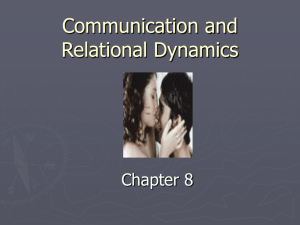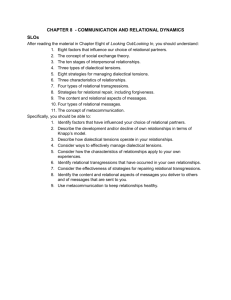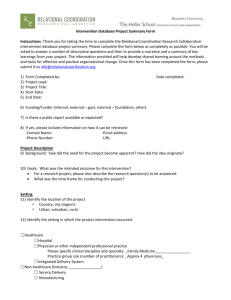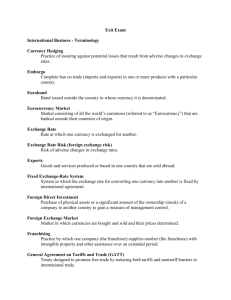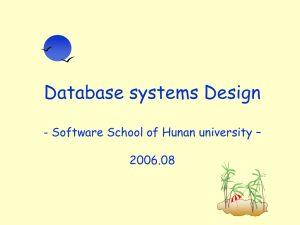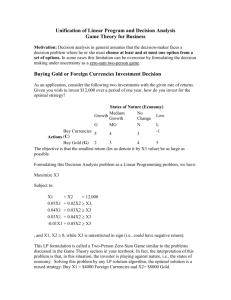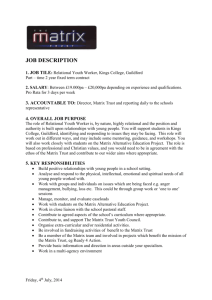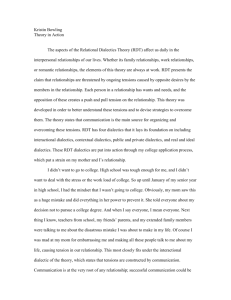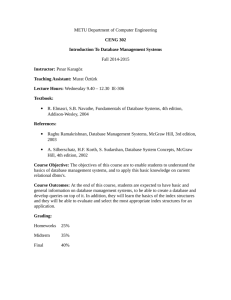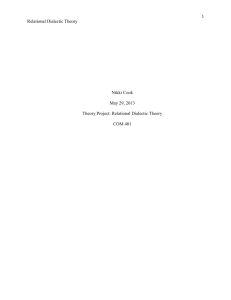Social Exchange Theory Social Exchange Theory
advertisement
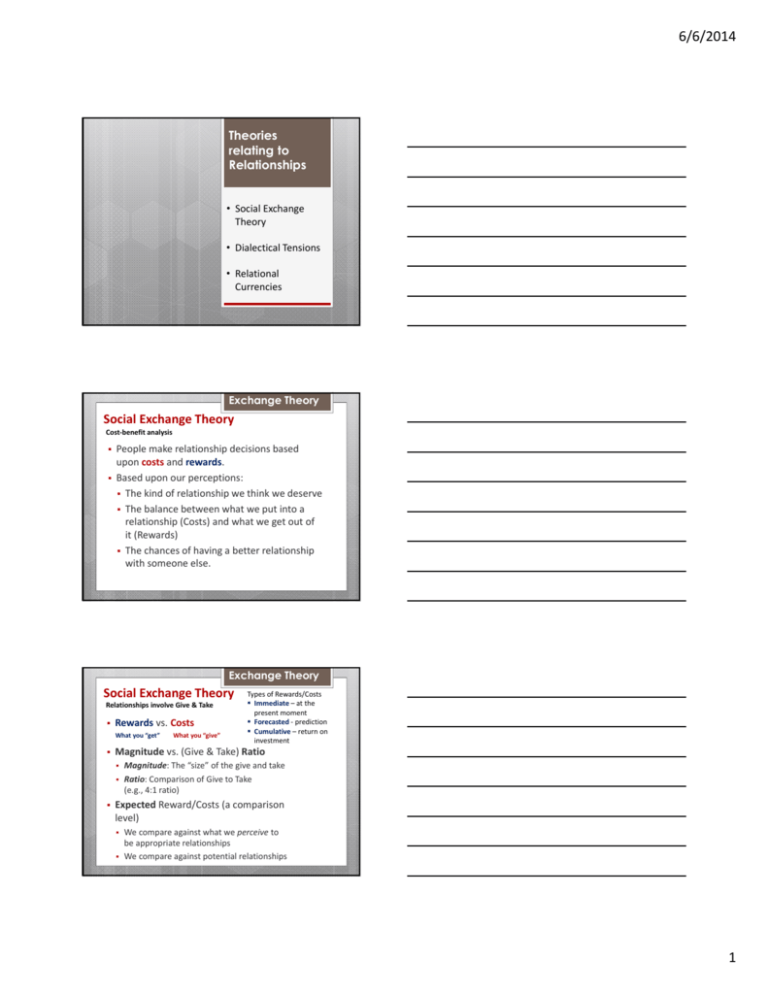
6/6/2014 Theories relating to Relationships • Social Exchange Theory • Dialectical Tensions • Relational Currencies Exchange Theory Social Exchange Theory Cost‐benefit analysis People make relationship decisions based upon costs and rewards. Based upon our perceptions: The kind of relationship we think we deserve The balance between what we put into a relationship (Costs) and what we get out of it (Rewards) The chances of having a better relationship with someone else. Exchange Theory Social Exchange Theory Relationships involve Give & Take Types of Rewards/Costs Immediate – at the present moment Forecasted ‐ prediction Cumulative – return on investment Rewards vs. Costs Magnitude vs. (Give & Take) Ratio What you “get” What you “give” Magnitude: The “size” of the give and take Ratio: Comparison of Give to Take (e.g., 4:1 ratio) Expected Reward/Costs (a comparison level) We compare against what we perceive to be appropriate relationships We compare against potential relationships 1 6/6/2014 Exchange Theory So What? Using it When you want to ask something else for something, make sure the balance of exchange is in your favor. You can also work on their perception of how exchanges happen within your relationship. Defending When people call in favors, think about what kind of exchange relationship you have with them and whether this is reasonable. RDT The Dialectics of Relationships Relational Dialectics Theory This approach studies the dynamic created by opposing factors/forces in a relationship Relationships are full of ongoing tensions between contradictory impulses These contradictions are played out in interactions (dialectical tensions) Dialectical Tensions are normal Problems occur when people fail to manage them properly Built on assumptions: We make communication choices Relational factors are best understood in relation to others RDT Three common dialectics Autonomy Connection We want to be close… but separate Certainty Uncertainty Predictability vs. Novelty Openness Closedness Self-disclosure 2 6/6/2014 RDT Strategies for managing dialectical tensions Denial (AKA Separation): Responding to only one side of the Alternation: Going back and forth between the two sides of a tension Disorientation: Escaping the tension entirely by ending the Segmentation: Separating out aspects of the tension and dealing tension and ignoring the other relationship with those aspects differently Balance (AKA Neutralization): Compromise/find a middle ground Integration: Develop behaviors that satisfy both sides of a tension simultaneously Recalibration (AKA Reframing): Reframing a tension so that the contradiction between opposing needs disappears Reaffirmation: Embracing/accepting dialectical tensions as normal Relational Currencies Relational Currencies Theory anything that can be used in trade Relational currency ‐ refers to communication behaviors that carry relationship meaning about the affection or caring dimension of human relationships It allows us to define the relationship in terms of importance to us Relational Currencies Two types of currencies Intimate identity focus; intrinsic Economic time & energy focus; extrinsic Direct relational statement Money Positive verbal statements Gifts Self‐disclosure Listening Food (preparation) Favors Staying in touch Service Nonverbal expressiveness Time together Physical touch Access rights Aggression Sexuality 3 6/6/2014 Relational Currencies Implications for Defining Relationships Factors influencing currency use Frequency of usage: Individual Cultural Dyadic Frequent use? Probably the currency not highly valued as a relational definer. Infrequent use? Probably the currency is highly valued; used in special relationships. Mixed Currencies: Problems can arise when transactions occurs with mixed currencies. 4
